1. Illinois

Illinois’ urban-rural divide has led to serious discussions about splitting in two. Many downstate residents feel dominated by Chicago’s political influence, arguing that the city’s policies don’t align with their conservative values. Issues like gun control, taxes, and public spending have fueled resentment toward lawmakers in the Democratic stronghold. According to Axios, some have suggested creating a new state called “New Illinois,” separate from the Chicago metro area.
Chicagoans, however, argue that their city is the economic heart of the state, providing jobs, tourism, and global business connections. If downstate Illinois were to break away, it might struggle financially without the tax revenue generated in the city. There’s also the challenge of infrastructure, as major highways, railways, and airports connect the entire state. Despite the logistical hurdles, rural Illinoisans continue to push for greater political independence.
2. Texas
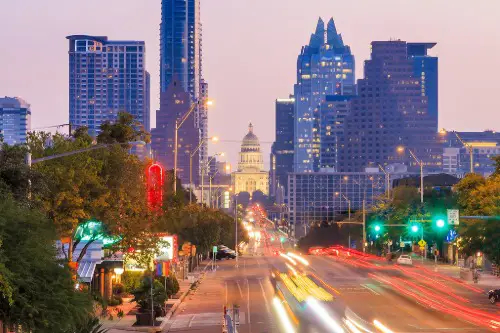
Texans are no strangers to independence, and some have suggested that the state should split into multiple regions, according to Smithsonian Magazine. The Texas Constitution even allows for the possibility of dividing into five separate states, though no serious effort has been made to do so. Many rural areas, particularly in West Texas, feel disconnected from the urban politics of Austin, Houston, and Dallas. They argue that high regulations, liberal policies, and cultural differences make it hard to coexist under one government.
Meanwhile, urban leaders point out that cities are the economic engines of the state, driving growth in tech, healthcare, and energy. Splitting Texas would create major logistical challenges, including disputes over resources like oil and water. Some also worry that breaking up Texas would weaken its influence on the national stage. Still, the idea of an independent “West Texas” or even a “Republic of Texas” continues to pop up in political discussions.
3. New York
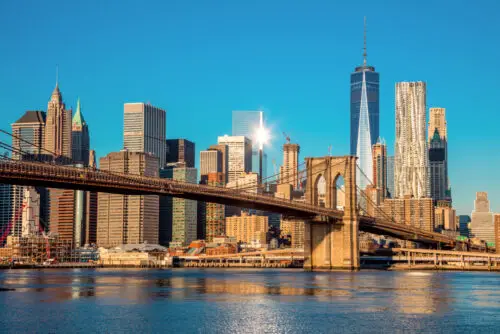
New York State has long been divided between upstate and downstate interests, with many upstate residents feeling overshadowed by New York City. Some have proposed breaking off the city from the rest of the state, allowing upstate communities to govern themselves without interference from Albany, according to Spectrum News. Upstate New Yorkers argue that the city’s progressive policies, high taxes, and strict gun laws don’t reflect their values or way of life. They believe they would be better off financially and politically without being tied to the five boroughs.
New York City, on the other hand, is the state’s economic powerhouse, generating most of its tax revenue. If it were to separate, upstate communities might struggle to fund essential services. Some politicians have suggested a compromise, such as granting New York City more autonomy while keeping the state intact. However, the deep cultural and economic divide continues to fuel talk of a split.
4. California

California has long been home to secessionist dreams, with multiple proposals to divide it into separate states, according to the California State Library. The most famous plan, “Cal 3,” would have split it into Northern California, Southern California, and California, but it failed to make it past legal challenges. Many rural residents in the north, particularly in areas like Jefferson (which includes parts of Northern California and Southern Oregon), feel ignored by the policies of Los Angeles and San Francisco. Their grievances include high taxes, strict environmental laws, and a sense that their votes don’t count.
On the flip side, coastal cities argue they fund much of the state’s economy and don’t want to see that money redistributed elsewhere. The idea of breaking up California has been around since the 1800s, but the state’s size and economic power make any split complicated. Some business leaders fear it would disrupt infrastructure, water rights, and trade. Still, the calls for a new “State of Jefferson” remain strong, especially in conservative-leaning rural counties.
5. Oregon
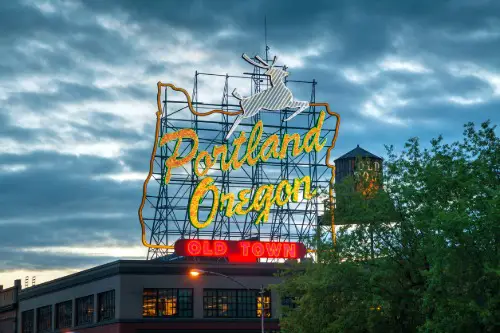
The idea of splitting Oregon has gained traction, especially in conservative eastern counties that feel disconnected from liberal Portland. Some residents want to break away and join Idaho, forming what they call “Greater Idaho,” The Guardian reports. They argue that Portland’s progressive policies on taxes, drug decriminalization, and gun laws don’t reflect their values. In several counties, voters have even passed measures supporting discussions about leaving Oregon entirely.
Portland, meanwhile, remains the cultural and economic hub of the state, and losing parts of eastern Oregon could hurt its tax base. Critics of the split say that rural areas benefit from state-funded programs and infrastructure that they might lose if they secede. There are also constitutional and congressional roadblocks to redrawing state lines. Even so, the movement for “Greater Idaho” is stronger than ever, with more counties considering referendums.
6. Washington
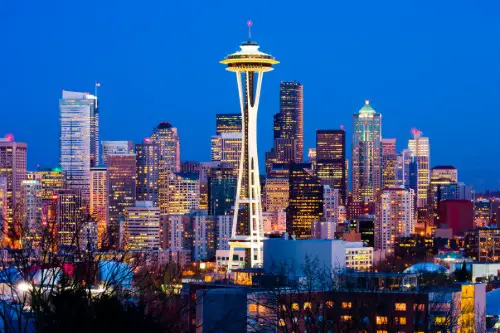
Washington State has a deep divide between its liberal, tech-driven west and its more conservative, agricultural east. Some eastern residents have proposed forming a new state called “Liberty,” arguing that Seattle dominates state politics. They feel their values on gun rights, taxation, and environmental regulations are ignored by lawmakers in Olympia. Many also resent the influence of big tech companies like Amazon and Microsoft, which drive much of the state’s policy decisions.
Western Washington, however, is home to the majority of the population and generates most of the state’s revenue. Supporters of keeping the state united argue that rural areas benefit from urban economic growth. Splitting the state could create financial instability for both sides, especially since Seattle’s economy supports many statewide programs. Despite this, eastern Washington residents continue to push for a government that better represents their interests.
7. Colorado
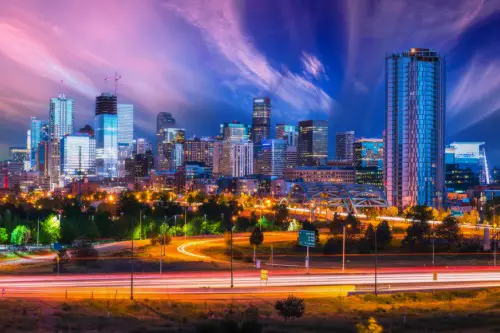
Colorado’s political landscape has shifted leftward in recent years, frustrating conservatives in rural parts of the state. In 2013, several northeastern counties even held votes on whether to secede and form a new state called “North Colorado.” The effort ultimately failed, but it highlighted a growing rural-urban divide over issues like gun rights, energy policy, and agriculture. Many rural Coloradans feel that Denver and Boulder set policies that don’t reflect their way of life.
On the other hand, Colorado’s urban areas are booming with tech, tourism, and renewable energy investments. Splitting the state could lead to economic challenges, as many rural counties rely on state funding for infrastructure and education. There’s also the issue of water rights, as urban and rural areas depend on shared resources. While the 2013 vote didn’t lead to a split, the sentiment behind it hasn’t gone away.
8. Virginia
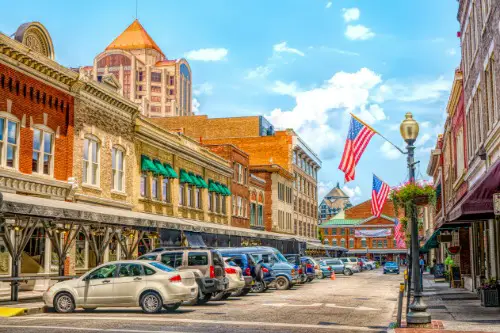
Virginia has seen increasing calls for a split, especially from conservatives in the western part of the state. Many rural residents believe that the political power of Northern Virginia, which includes the D.C. suburbs, doesn’t reflect their values. Issues like gun control, taxes, and business regulations have widened the gap between urban and rural areas. Some western counties have even proposed leaving Virginia entirely and joining West Virginia.
Northern Virginia, however, is the state’s economic engine, with federal jobs, tech companies, and defense contractors fueling its growth. If the state were to split, rural Virginia might struggle financially without the tax revenue from wealthier northern regions. Critics also argue that separating the state would create unnecessary legal and logistical challenges. Still, the idea of breaking off from Richmond’s policies remains popular in more conservative areas.
9. Florida
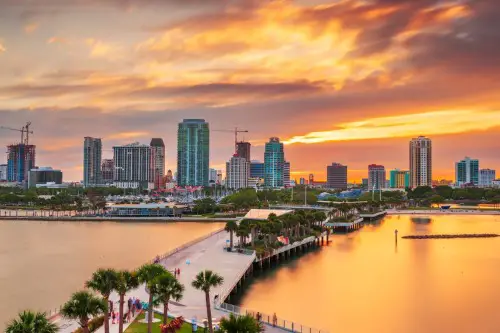
While Florida is often seen as a politically unified state, there’s a growing divide between its northern and southern regions. Some residents in South Florida have proposed splitting off to form their own state, arguing that Miami, Fort Lauderdale, and West Palm Beach have different needs than the Panhandle. Climate change, disaster preparedness, and infrastructure spending are major concerns for South Florida, where rising sea levels threaten coastal cities. Many in the region feel that state leaders in Tallahassee don’t prioritize these issues.
Meanwhile, North Florida tends to be more conservative and rural, with different economic priorities. Some argue that the high costs of maintaining South Florida’s infrastructure and hurricane relief efforts place an unfair burden on the rest of the state. Others worry that a split would disrupt the state’s tourism and real estate industries, which are key to Florida’s economy. Despite these concerns, the idea of an independent South Florida continues to gain traction among those frustrated with the state government.
10. Pennsylvania

Pennsylvania’s political and cultural divide between its eastern and western regions has led to discussions about splitting the state. The Philadelphia area leans progressive and has a strong urban economy, while much of central and western Pennsylvania is more conservative and rural. Some western residents believe that state policies on taxes, energy, and gun rights don’t reflect their values. They argue that Philadelphia and its suburbs control too much of the state’s political power.
On the other hand, Philadelphia and Pittsburgh are the economic drivers of Pennsylvania, providing jobs and funding through taxes. A split could leave rural areas struggling financially, as they often rely on state-funded services. There’s also the issue of infrastructure, as major highways, rail lines, and energy resources connect both sides of the state. While a division isn’t likely, the frustration between urban and rural Pennsylvania continues to grow.
11. Michigan
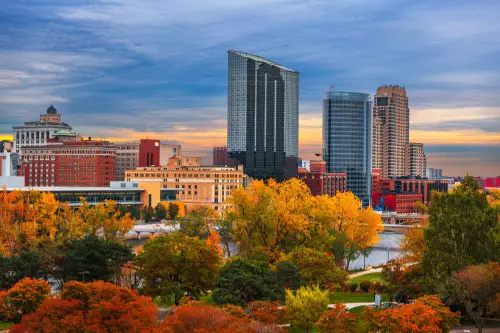
Michigan’s Upper Peninsula (U.P.) has long felt like a separate world from the rest of the state, and some residents have pushed for it to become its own state. The U.P. is geographically isolated and has a distinct culture, with strong ties to mining, forestry, and outdoor tourism. Many Yoopers (as U.P. residents are called) feel ignored by lawmakers in Lansing, who focus more on Detroit and Grand Rapids. They argue that their needs, particularly regarding infrastructure and economic development, are overlooked.
However, the U.P. has a small population and relies heavily on state funding for roads, education, and public services. If it were to become its own state, it might struggle to generate enough revenue to sustain itself. Some also worry that a split would make it harder for residents to access healthcare and other essential services. Despite these challenges, calls for a separate “State of Superior” still pop up from time to time.
12. Georgia
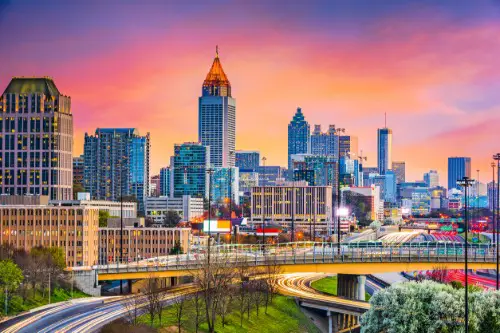
Georgia’s divide between Atlanta and the rest of the state has led to talk of breaking up the Peach State. Some rural conservatives argue that Atlanta dominates state politics, pushing progressive policies that don’t reflect the rest of Georgia. Issues like gun laws, taxes, and election policies have heightened tensions between the capital and more conservative areas. Some proposals have even suggested making Atlanta its own independent state.
However, Atlanta is Georgia’s economic powerhouse, home to major corporations, universities, and the busiest airport in the world. If it were to separate, rural Georgia might struggle financially, as the city generates much of the state’s tax revenue. There’s also the challenge of infrastructure, as many rural areas rely on Atlanta’s resources and transportation hubs. Still, the idea of a Georgia split continues to gain traction among those who feel politically and culturally disconnected from the capital.
13. Indiana
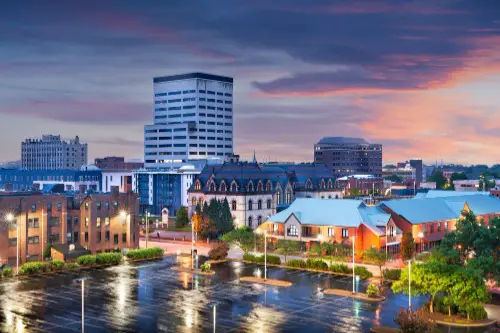
Indiana’s urban-rural divide has fueled discussions about a potential state split, particularly between Indianapolis and the rest of the state. Many rural residents believe that policies coming from the capital don’t align with their values, especially regarding taxes, business regulations, and social issues. Some conservatives in southern Indiana have even floated the idea of joining Kentucky instead. They argue that their culture and economy are more closely aligned with their southern neighbor.
Indianapolis, however, is the economic and cultural heart of Indiana, generating much of the state’s tax revenue. If the city were to separate, rural areas might face financial difficulties, particularly in funding schools and infrastructure. There’s also the challenge of governance, as many state agencies and programs are centralized in Indianapolis. Despite these obstacles, resentment toward urban influence continues to fuel talk of a split.
14. Alaska
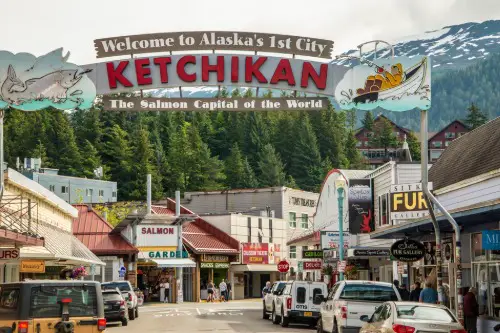
Alaska is unique because some residents have pushed not just for a state split but for full independence from the U.S. The state’s vast size and remote location make many Alaskans feel disconnected from Washington, D.C., and even from their own state government in Juneau. Some residents of the more developed southern regions feel that their tax dollars go toward subsidizing rural communities. On the flip side, rural Alaskans argue that their way of life—particularly in Native villages and fishing towns—isn’t prioritized in state policies.
If Alaska were to split, it could create economic and logistical challenges, as much of the state relies on shared resources like oil revenue. There’s also the issue of federal funding, which plays a crucial role in supporting infrastructure, healthcare, and education. Some independence advocates believe Alaska could thrive on its own, using its vast natural resources to build a self-sufficient economy. While a split or secession isn’t likely, the desire for greater autonomy remains strong in parts of the state.


